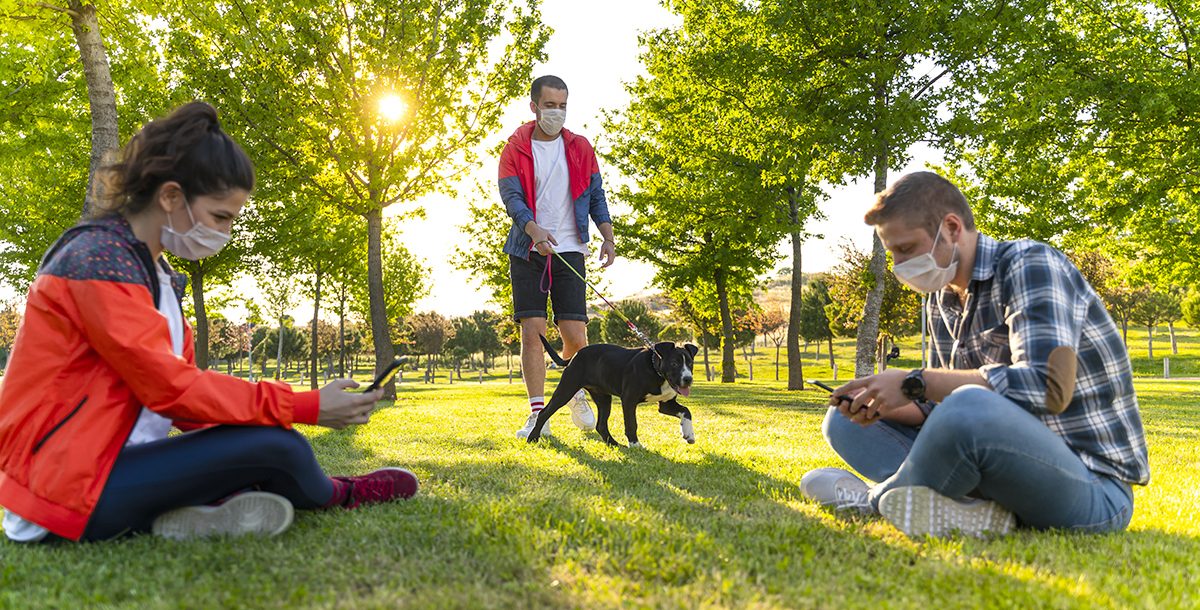So much is still unknown about COVID-19. But more and more studies are teaching us that wearing a face mask can help slow the spread.
One major issue is that there’s so much incorrect information out there. So, it can be hard to tell when you should wear a face mask and when it’s not necessary.
As a rule of thumb, you should always wear a face mask if you’re in a place where you can’t avoid being close to other people. However, there may be a few more additions to that rule.
Learn more about situations when you should pop on that mask just to be safe.
When it’s required by law
The first place to check whether you’ll need a face mask is with your local state, city and county governments. Many cities and states around the U.S. have ordered citizens to wear masks when they’re out in public. Not doing so can cost you a fine or even lead to jail time. So, make sure you understand your local laws before you leave your house. And you may want to bring a mask along just in case.
When a public place requires it
While your city or state may not require you to wear a face mask, the place you want to visit might. Large retailers like grocery chains, big-box stores, clothing chains, home improvement stores and some fast food restaurants have asked all customers around the country to wear masks in all of their locations.
Many other retailers do too, including local smaller businesses. Places like post offices and courthouses may also require masks. If you’re not sure, call ahead or look for a sign on the door. Some stores even have employees at the door to make sure everyone who enters is following the rules.
When you’re outdoors and within six feet of other people
Much of the time, you don’t need to wear a face mask outdoors. The exception is when you can’t avoid being within six feet of other people.
Maybe you’re strolling down a busy sidewalk. Maybe you’re taking your groceries to your car in a busy parking lot. Or perhaps you’re walking your favorite trails that are getting busier on the weekends.
This is why it’s good to have a mask on you just in case. Your governor or county leadership may also have restrictions in place about wearing masks outdoors. Be sure to follow them.
When you’re in a public place with other people
Even if you’re in a public place that doesn’t require masks, always wear one when you’re indoors. You never know when you’ll need to stand close to another person in these situations. It can be difficult in restaurants, but unless you’re eating, try to keep your mask on.
When you’re in a confined space with others
You’ll also want to wear a mask when you know you’ll be in a confined space with another person who isn’t part of your household. This could be anyone from the person on the elevator at the mall to your Uber driver. Masking up may not be required, but it may prevent someone from getting the virus.
When you don’t need a face mask
Wearing a mask is essential for your safety, even though it can get tiring when you’re wearing it often.
Fortunately, there are also times and places where you won’t need a mask. Keep on wearing your mask wherever necessary, and feel free to take it off in the following situations:
- When you’re only around people you’ve been quarantined with
- When you have a medical condition that causes breathing problems
- When you’re eating or drinking in a public place, like a restaurant or cafe
- When you’re out running or participating in strenuous exercise that affects breathing
- When you have a mental or physical disability that prevents you from removing the mask if necessary
- When you’re in an outdoor area and are able to stay at least six feet away from others, such as at a beach or park
- When you’re outside in your own yard or are taking a walk through your community and no one else is around, such as during the evening
Visit us at Mercy.com if you have questions about face masks, the symptoms of COVID-19 or when to seek care.






